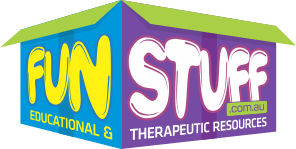How to Improve a Child’s Impulse Control – Practical Strategies and Engaging Resources
Impulse control is a crucial skill for children, influencing their ability to regulate emotions, make thoughtful decisions, and interact positively with others. While some children naturally develop stronger self-regulation skills, others may struggle with waiting their turn, managing frustration, or resisting the urge to act impulsively. The good news? Impulse control can be improved with the right strategies, practice, and engaging resources.
At Fun Stuff Educational, we understand the importance of helping children develop self-regulation skills in a way that is both effective and enjoyable. Through structured activities, interactive games, and thoughtfully designed learning tools, children can strengthen their ability to pause, think, and respond rather than react impulsively.
Understanding Impulse Control in Children
Impulse control is part of executive functioning, which governs a child’s ability to plan, focus attention, remember instructions, and juggle multiple tasks successfully. Children with underdeveloped impulse control may struggle with:
- Interrupting conversations
- Acting without thinking about consequences
- Difficulty waiting for their turn
- Emotional outbursts
- Trouble following multi-step instructions
While some degree of impulsivity is expected in young children, persistent challenges in this area can affect learning, social interactions, and self-confidence. That’s why providing structured opportunities for children to practice impulse control is essential.
Strategies to Improve a Child’s Impulse Control
- Teach the “Pause and Think” Strategy
Encourage children to pause and consider their response before acting. One way to do this is by introducing stop-and-think games that make self-regulation fun. For example, playing “Red Light, Green Light” helps children develop the habit of pausing and responding appropriately.
Try This: Fun Stuff Educational offers interactive games that encourage children to think before acting, reinforcing patience and decision-making skills.
- Use Visual and Verbal Cues
Visual aids such as stop signs, traffic lights, or emotion charts can help children identify their feelings and reactions before acting impulsively. Simple verbal cues like “Take a deep breath” or “Think before you speak” can also guide them towards self-regulation.
Try This: Explore our range of flashcards and social-emotional learning tools, designed to help children recognise emotions and practise self-control.
- Encourage Mindful Breathing and Relaxation Techniques
Teaching children how to manage emotions through deep breathing or mindfulness activities can significantly improve their impulse control. Simple exercises like “Belly Breathing” or “Counting to Five” can help children slow down and regain control in moments of frustration or excitement.
Try This: Our selection of sensory tools and calming resources can support children in practising self-soothing techniques.
- Engage in Turn-Taking and Delayed Gratification Games
Games that require waiting, turn-taking, and strategic thinking are excellent for building impulse control. Board games, memory games, and storytelling activities encourage children to practise patience and thoughtful decision-making.
Try This: Fun Stuff Educational offers a variety of games and activities that promote self-regulation, helping children strengthen their ability to wait, plan, and think ahead.
- Reinforce Positive Behaviour with Praise and Rewards
Recognising and reinforcing good self-control can encourage children to repeat positive behaviours. Praise them when they successfully wait their turn, follow directions, or manage frustration well. Using a reward chart or token system can also help them track their progress.
Try This: Our collection of behavioural development resources includes tools to reinforce positive actions and support children in their impulse control journey.
Supporting your child’s growth with engaging resources
Developing impulse control takes time, patience, and the right support. By integrating play-based learning tools, children can strengthen their ability to regulate emotions, improve decision-making skills, and navigate social situations more effectively. At Fun Stuff Educational, we offer a thoughtfully curated selection of toys, games, and learning materials designed to help children practise impulse control in an engaging and effective way. By providing structured opportunities, engaging activities, and the right tools, we can help children develop the self-control skills they need to thrive – at home, in the classroom, and beyond.
Recent Posts
-
Top Educational Toys for Children with Special Needs
Play is not only entertaining, but it is critical when it comes to assisting children to learn and d …2nd Feb 2026 -
What Are Sensory Toys and Why Are They Important?
Children learn more than watching or listening. They learn through engaging in movement, touching, f …12th Jan 2026 -
Boost Speech Confidence: The Essential Guide to Choosing and Using Premium Articulation Cards
Every parent, educator, and speech-language pathologist (SLP) understands the transformative power o …7th Nov 2025




